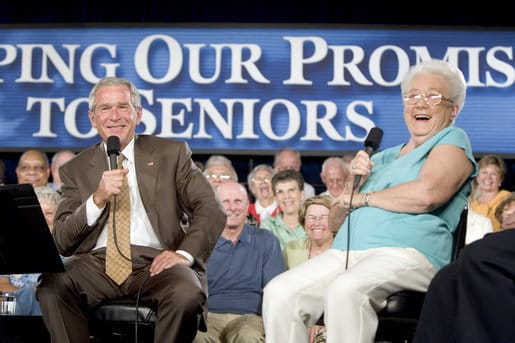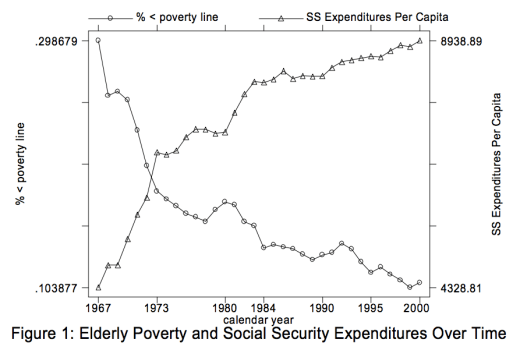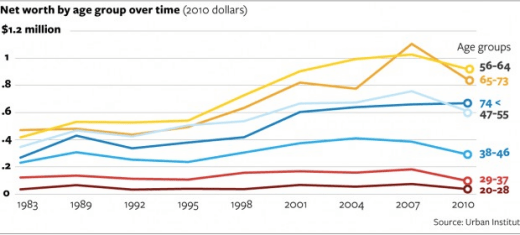
You’ve seen them on the bus, in museums, and at movie theaters: senior discounts. As a reward for being old, senior citizens pay a quarter less for bus fare, a small fortune less for movie tickets, and receive discounts generally all over the place.
If you’re a twentysomething, or part of what some journalists have colorfully called “the screwed generation,” you may be wondering: why not me?
The idea that seniors are a group in need of help and protection dates back to the thirties, when America’s senior citizens were disproportionately poor and affected by the Depression wiping out everyone’s savings. In 1935, President Roosevelt passed the Social Security Act, which gave federal assistance to the elderly. This became the norm. Aid to seniors increased over time, in particular with the creation of Medicare in 1965 and the passage of an amendment indexing social security to cost of living increases and creating an additional Supplemental Security Income for seniors in 1972.
As two poverty economists note, “One of the most striking trends in elderly well-being in the twentieth century was the dramatic decline in income poverty among the elderly.” This can be seen in the graph below.
The United States only began measuring poverty in the 1960s, so we lack standard figures dating farther back than that. But it’s recognized that the trend of decreasing poverty among seniors dates back to the thirties and forties. 2011 Census figures place poverty among Americans aged 65 and older at 8.7%, well below the national average of 15%.
Today it is the Millennials, the youngest generation, that finds itself poor, vulnerable, and screwed by financial storms caused by another generation. Unemployment among 18-29 year olds is 11.1% and has been over 10% for 53 months. The rate for people age 16-24 is 16.1%. Poverty is highest among teens and children – 27%.
Graph from the National Journal
There’s also good reason to think that Millennials’ hard luck won’t go away soon. Besides carrying around $1 trillion in student debt, Millennials have to deal with the fact that entering a poor job market has been found to be a drag on income over one’s entire career.
It’s Millennials, not seniors, that are vulnerable today. Yet it’s still the seniors that receive discounts on public services and benefit from price discrimination by private companies.
So if you’re a twentysomething, the next time you see an adorable old lady paying less bus fare with her senior discount, demand that you receive the discount instead of her. Tell the driver it’s the screwed Millennial discount.
This post was written by Alex Mayyasi. Follow him on Twitter here or Google Plus. To get occasional notifications when we write blog posts, sign up for our email list.





